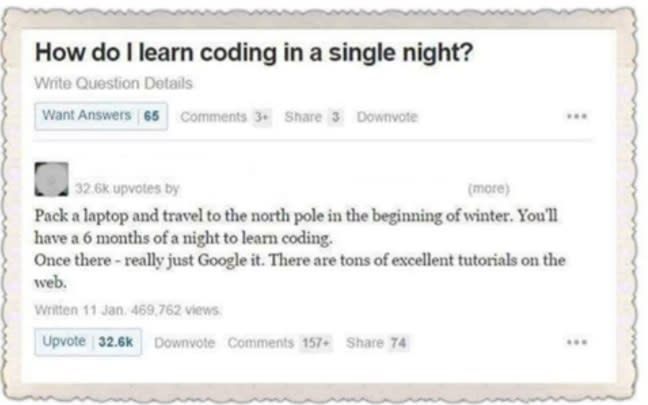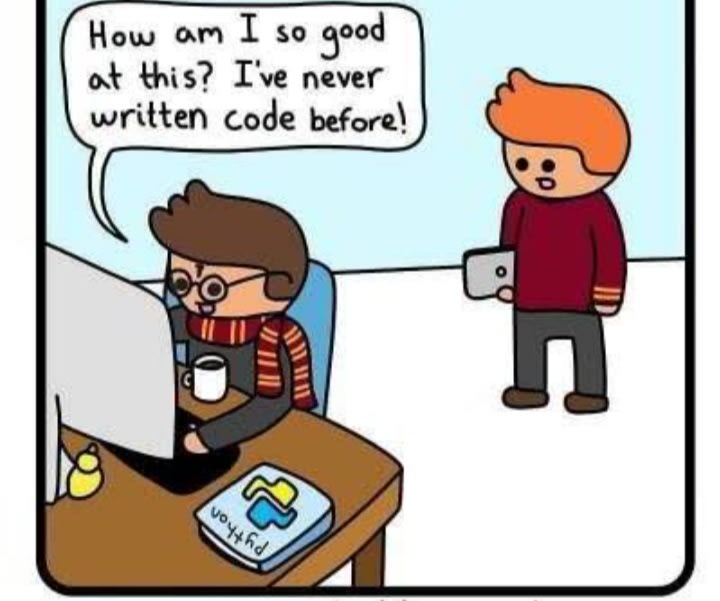
Learning any programming language is quite challenging and can sometimes be a difficult task.
It takes time, commitment and passion. If a person does not have a good reason to do it, one may end up quitting along the journey. This article focuses majorly on the steps you can use as a beginner to get started and eventually master Python programming language the right way. It is a kind of road map that a beginner can use as an example, while starting with Python, to create their road map.
# Contents
#STEP 1: Find your motivation🤗
#STEP 2: Learn Python Fundamentals/ basics😇
#STEP 3: Work on a project☺
#STEP 4: Teach others🤭
#STEP 5: Join a community🥰
STEP 1. Find your motivation
Most good programmers do programming not because they expect to get paid or get adulation by the public, but because it is fun to program. ~Linus Torvalds
It is key that before you begin learning a programming language that you should sit down, reflect and find your motivation to learn that particular language over other languages.
You have to discover the thing that is motivating you to learn Python.
Your motivation can start with an answer to a simple why question: 'Why do I want to learn Python programming language?'.
The answer to this can be the one that pops into your head first.
Tips to help with your motivation
Things you can do with Python:
i. Data Science(Machine learning, Data analysis and data visualization)
Machine learning implements an algorithm that automatically detects a pattern in the given input.
Popular Machine learning algorithms:
Deep learning.
Neural networks.
Random forest.
Support vector machines.
Libraries for ML:
TensorFlow
Scikit-learn
Data analysis is used for extracting information from data and making a decision based on the data.
Data analysis libraries:
Pandas
Numpy
SciPy
IPython
Data visualization deals with a graphic representation of data.
Data visualization libraries:
Matplotlib
seaborn
ii. Web development
Web development is the task of developing websites that can be hosted on the internet.
Libraries for web development
Django
Pyramid
Flask
CherryPy
NOTE that a vague motivation like getting money does not help you to focus on the specific thing that you need to learn.
You will have a difficult time figuring out what to learn after studying the basics of Python if you do not know what you want to use Python for.
STEP 2:Learn Python fundamentals/ basics
You need to learn Python basic Syntax.
Python basics that you need to know include variables, lists, statements(if, if-else, nested if), loops(for loops, while loops), functions(built-in and user-defined functions), classes and objects.
Take the shortest time on this step because you do not need to cram everything.
Learn how to Google when you do not know a concept.
You should get to a point where you can start working on simple projects.
Make use of YouTube videos, tutorials and interactive websites like freeCodeCamp.
Choose a project that you can work on.
Tips on choosing a project
Choose a personal project based on something that interests you. Your project should be something that motivates you.
Choose a simple project, say if you wanted to build a website you can start with a simple Instagram photo and video downloader.
Choose a project that is useful to you and others.
Benefits of working on projects
It helps you practice what you have learnt.
It helps you learn how to solve challenges.
It helps you learn new things.
It helps maintain your motivation.
First solve the problem, then write the code ~ John Johnson
Try to build projects on your own without using YouTube, tutorials or a guide.
Unlike other disciplines, in programming everyone Googles so do not be afraid to look up something whenever you feel stuck. Stack Overflow is one of the best resources for programming questions.
Work on more difficult projects after getting past solving simple projects on your own.
STEP 4. Teach others.
The person who says he knows what he thinks but cannot express it usually does not know what he thinks Mortimer Adler
For this step, I would recommend a technique that I think is the best way to learn something, the Feynman Technique.
This is a technique by Richard Feynman that is used to explain complicated subjects in the simplest terms.
The best way to remember a concept is by writing it down. You can use tutorials and blogs for this.
After learning a concept in Python and understanding it well, try to write it in your understanding.
The Feynman technique recommends explaining something like you are teaching it to a 12-year old.
This helps you not only to refresh your mind of these concepts but also to teach someone else and help them understand.
I would recommend dev. to for writing your articles and blogs.
STEP 5. Join a community
Writing your code in the comfort of your room isn't beneficial to anyone, and sometimes you can get STUCK.
You need other people to help you.
There are a lot of online and offline communities for programming.
You can search for Twitter or Facebook groups that are within your region and join them.
This also helps with your networking.
You can also join coding boot camps that are free or paid for depending on your financial situation. Lux Tech Academy is a good starting place and I would 100% recommend it.
These communities can be useful to even help you get an internship or a job where you can improve your skills.
Finally
These are the five steps I would recommend for any beginner in Python programming.
Remember to learn by doing, after all the best way to learn Python Programming is to learn Python!
Here's my Twitter:Victorine









Top comments (2)
Please give me your GitHub profile link
GitHub profile